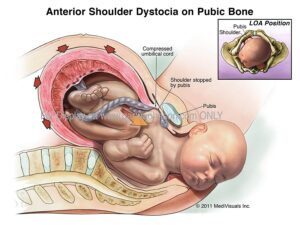The birth of a child is often portrayed as a joyous occasion, a moment filled with happiness and relief. However, for many mothers, the experience can be marred by birth trauma, a significant psychological impact resulting from a distressing birth experience. Understanding and addressing birth trauma is crucial for maternal health and emotional recovery. This blog explores the nature of birth trauma, its effects, and effective coping strategies to aid postpartum healing.
What is Birth Trauma?

Birth trauma refers to the psychological distress experienced by mothers during or after childbirth. It can stem from various factors, such as unexpected medical interventions, emergency cesarean sections, a sense of loss of control, or even inadequate support from healthcare providers. The experience can leave lasting emotional scars, affecting a mother’s mental well-being and her ability to bond with her newborn.
The Psychological Impact of Birth Trauma
The psychological impact of birth trauma can be profound and multifaceted. Mothers may experience symptoms similar to post-traumatic stress disorder (PTSD), including flashbacks, nightmares, and severe anxiety. The trauma can also lead to postpartum depression, making it challenging for mothers to care for their newborns and themselves. Understanding these impacts is the first step towards emotional recovery and postpartum healing.
Importance of Emotional Recovery
Emotional recovery is a vital component of healing from birth trauma. Without addressing the emotional wounds, mothers may struggle with long-term psychological issues, impacting their overall quality of life. Effective recovery involves acknowledging the trauma, seeking professional help, and finding supportive communities.
Coping Strategies for Postpartum Healing
- Seeking Professional Help: Trauma therapy can be highly beneficial for mothers dealing with birth trauma. Therapists specializing in postpartum issues can provide a safe space for mothers to express their feelings and develop coping strategies. Cognitive-behavioral therapy (CBT) and eye movement desensitization and reprocessing (EMDR) are effective approaches in trauma therapy.
- Building Support Systems: A robust support system is crucial for mothers experiencing birth trauma. This includes family, friends, and support groups. Sharing experiences with other mothers who have undergone similar situations can provide comfort and reduce feelings of isolation.
- Practicing Self-Care: Self-care is essential for emotional recovery. Simple practices such as adequate rest, balanced nutrition, and gentle exercise can improve mental well-being. Mindfulness and relaxation techniques, such as meditation and yoga, can also help reduce anxiety and promote a sense of calm.
- Educating Yourself: Understanding birth trauma and its effects can empower mothers to take control of their recovery. Reading books, attending workshops, and participating in online forums can provide valuable insights and coping mechanisms.
- Expressing Emotions: Bottling up emotions can hinder recovery. Encouraging mothers to express their feelings through writing, art, or talking can be therapeutic. Journaling about the birth experience can help process emotions and gain perspective.
The Role of Healthcare Providers
Healthcare providers play a crucial role in preventing and addressing birth trauma. Providing compassionate care, clear communication, and emotional support during childbirth can significantly reduce the risk of trauma. Postpartum follow-up appointments should include screenings for psychological distress, ensuring mothers receive the necessary support.
Maternal Health and Newborn Care
Maintaining maternal health is essential for effective newborn care. Mothers struggling with birth trauma may find it challenging to care for their infants. Ensuring they receive adequate support and resources can help them better manage newborn care while addressing their own emotional needs.
Conclusion
Birth trauma is a significant issue that can profoundly impact a mother’s psychological well-being. Understanding its causes and effects is crucial for emotional recovery and postpartum healing. By seeking professional help, building support systems, practicing self-care, educating themselves, and expressing emotions, mothers can overcome the challenges of birth trauma. Additionally, healthcare providers must prioritize compassionate care and ongoing support to mitigate the risk of trauma.
Addressing birth trauma is not only vital for the well-being of mothers but also for the healthy development of their newborns. With the right support and resources, mothers can heal from their traumatic birth experiences and embrace the joys of motherhood.



















